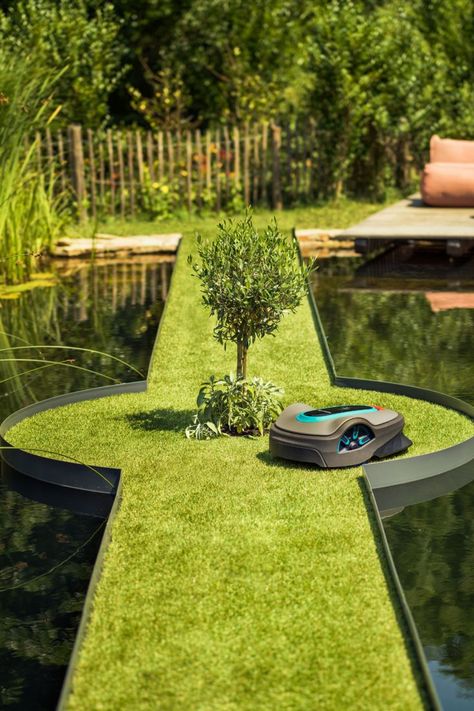Smart technology is revolutionizing lawn maintenance by introducing innovative tools and systems that simplify and optimize traditional yard care practices. With automation, real-time data, and precision, homeowners can achieve healthier, more attractive lawns with less effort. Here’s how smart technology is transforming lawn maintenance:
1. Automation for Convenience
Smart devices, like robot lawn mower and irrigation systems, automate tasks such as mowing, watering, and fertilizing. These systems can be programmed to operate on schedules that suit your needs, eliminating the need for manual labor and ensuring consistent upkeep of your lawn.
- Example: Robotic mowers autonomously cut the grass while navigating around obstacles and returning to their charging stations when needed.
2. Optimized Water Usage
Smart irrigation systems use weather data and soil moisture sensors to adjust watering schedules. By delivering water only when and where it’s needed, these systems prevent overwatering and reduce water waste.
- Impact: Conserves water resources, lowers utility bills, and prevents issues like waterlogged soil and fungal growth.
3. Enhanced Lawn Health Monitoring
Smart soil sensors provide detailed insights into your lawn’s condition, including soil moisture, nutrient levels, and pH balance. This data enables you to address specific issues, such as nutrient deficiencies or dry patches, more effectively.
- Example: Real-time updates on soil health allow you to apply fertilizers or water at the right time and in the right amounts.
4. Remote Control and Monitoring
With mobile app integration, you can control and monitor your lawn care devices from anywhere. Adjust mowing schedules, check soil conditions, or activate irrigation systems using your smartphone or tablet.
- Benefit: Provides flexibility and ensures that your lawn is maintained even when you’re away.
5. Energy and Cost Efficiency
Smart lawn care devices are designed to be energy-efficient and eco-friendly. Robotic mowers often use rechargeable batteries, while smart irrigation systems reduce water usage. These efficiencies save money in the long run and reduce your environmental impact.
- Impact: Lower energy bills, reduced water waste, and a smaller carbon footprint.
6. Precision and Consistency
Unlike manual methods, smart technology delivers precise and consistent results. Robotic mowers cut grass evenly, while smart sprinklers ensure water is distributed uniformly. This precision helps maintain the overall appearance and health of your lawn.
- Example: GPS-enabled mowers create efficient mowing patterns, ensuring every corner of your yard is covered.
7. Weather-Adaptive Features
Smart systems can adjust to changing weather conditions. For instance, irrigation systems delay watering during rain or increase it during dry spells. This adaptability ensures your lawn gets the care it needs, regardless of the weather.
- Impact: Prevents overwatering and keeps your lawn healthy through varying climates.
Conclusion
Smart technology significantly improves lawn maintenance by automating tasks, optimizing resource usage, and providing valuable insights into lawn health. These tools offer convenience, efficiency, and sustainability, making it easier than ever to maintain a lush, vibrant yard. Whether you’re a seasoned gardener or a busy homeowner, smart technology ensures your lawn receives the best care with minimal effort.


